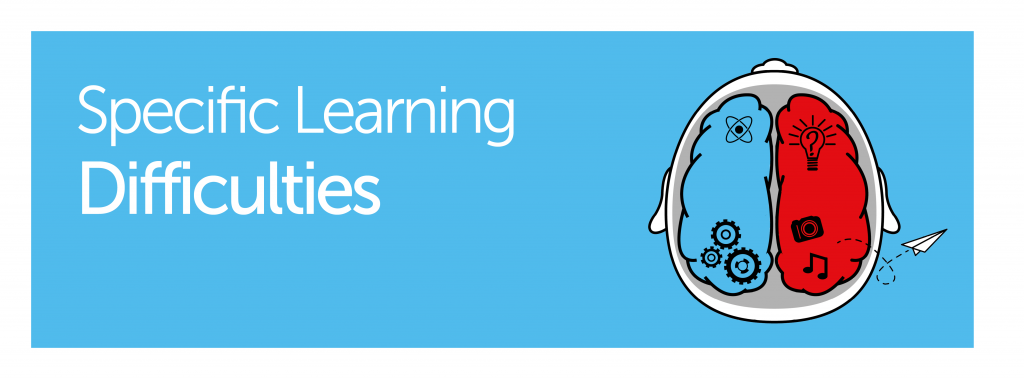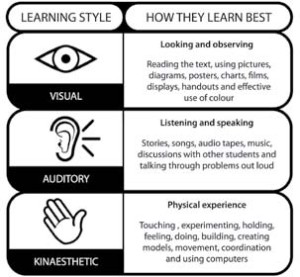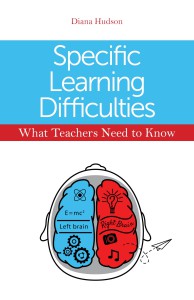 Diana Hudson is a tutor and mentor to students with Specific Learning Difficulties (SpLD), as well as a subject classroom teacher (biology) and learning support teacher and SENCO. She has a diagnosis of dyslexia, and is a parent to four children, three of whom have been diagnosed with SpLD. We talked to her about the inspiration for her book Specific Learning Difficulties – What Teachers Need to Know, and she shares her advice for teachers on how to support children with SpLD’s.
Diana Hudson is a tutor and mentor to students with Specific Learning Difficulties (SpLD), as well as a subject classroom teacher (biology) and learning support teacher and SENCO. She has a diagnosis of dyslexia, and is a parent to four children, three of whom have been diagnosed with SpLD. We talked to her about the inspiration for her book Specific Learning Difficulties – What Teachers Need to Know, and she shares her advice for teachers on how to support children with SpLD’s.
-
Tell us a little about your writing process. What inspired you to write the book?
I became aware of Specific Learning Difficulties because my children were diagnosed with dyslexia. As I supported their learning through school, I could identify the teachers who were helpful and proactive and gave the children confidence despite any difficulties. These teachers are remembered fondly to this day.
As a biology teacher I tried to encourage and help students with SpLD in my classes and to make my lessons multisensory and fun. I became the first SENCO at a high achieving academic school and I ran staff insets to help teachers understand students with SpLD better and to adapt teaching styles and materials to allow them to thrive. The booklet that I wrote for the insets became the basis for my book.
-
Your many years of teaching must have provided you with extensive experience and knowledge. What kind of support for students with specific learning difficulties would you like to see more of in schools?
Early identification of SpLD makes a huge difference. People usually feel relieved if they are diagnosed and learn that they are not ‘stupid’ after all. Strategies can then be put in place in order to help them achieve their potential.
A designated adult mentor at school is a great support. It is important that students meet regularly with the mentor and can talk openly and confidently with them.
The mentor or SENCO should regularly pass on information and any teaching tips to the relevant teaching staff and listen to the teacher’s concerns. Tips could include simple changes such as reacting to the student’s preference for print on a particular coloured paper, preferred fonts and print size, use of technology, any friendship issues, and seating preferences. Everyone is different so these will vary.
 Teachers should be aware of the student’s strengths and try to work with them, where possible to achieve the learning objective. Could they, for example, make a poster of a power point presentation rather than writing an essay? Celebrating success is an important step to improving confidence and aspirations.
Teachers should be aware of the student’s strengths and try to work with them, where possible to achieve the learning objective. Could they, for example, make a poster of a power point presentation rather than writing an essay? Celebrating success is an important step to improving confidence and aspirations.
Regular communication between the mentor or SENCO and the parents ensures the student knows that school and home are all working together.
-
You have personally only recently been diagnosed with dyslexia, although you did struggle somewhat in school. You went on to gain a PhD in Zoology and have taught successfully for many years. How do you manage to cope with such a demanding workload? What are some of the techniques and tricks that you use?
I have learned to work hard and to be stubborn and tenacious if I have a goal in sight. I do not give up easily. I still make errors sometimes but I try to keep my sense of humour and sense of proportion and focus on moving forward counting them as learning experiences and not catastrophes.
Tricks I use for learning included mnemonics, silly rhymes, repetition, using colour and visual aids, trying to represent things with models. I sometimes make up phrases, poems or songs to fix facts. I record play lines or poems to learn them.
I have to be well prepared for teaching lessons and I always check key spellings in advance. I set off early for appointments to allow extra time to get lost.
I enjoy walking, acting and dancing and these hobbies help me to relax and keep a sense of balance.
-
Your book aims to help teachers support students with learning difficulties better. Was there anyone that supported and mentored you while you were a student? What impact do you think this had on your experiences of studying?
I was at school at a time before dyslexia was really recognised or understood so I was in the class that was not expected to go to University having failed the 11+ exam.
I really have to thank my parents for their great support throughout my school and University days, they backed me and had faith in my ability and this helped build my confidence which was of key importance.
Some of my teachers rated my academic potential as poor but a few stood out as having higher expectations of me. They recognised my skills and potential and tried to help me to work round difficulties and would spend time with me individually. I was nervous and afraid of some teachers so I really valued those who were cheerful, smiled, and I felt safe with.
Once at University my professor was very kind and a few of the lecturers helped me individually.
My PhD supervisor was excellent.
-
What do you think is the most common misunderstanding about specific learning difficulties?
That people with SpLD they are unintelligent, careless or not interested.

Some feel that they are merely used as an excuse to get extra time in exams.
-
What is the number one thing you hope teachers will take away from your book?
That SpLD’s are real and cause anguish. A teacher who listens, is sympathetic, supportive and cheerful can makes a huge difference to the life, outlook and prospects of a student with SpLD.
If you want to know more about identifying and supporting students with SpLD’s, check out Diana’s book here.
You can also watch a video of Diana speaking about the topic here.
One thought